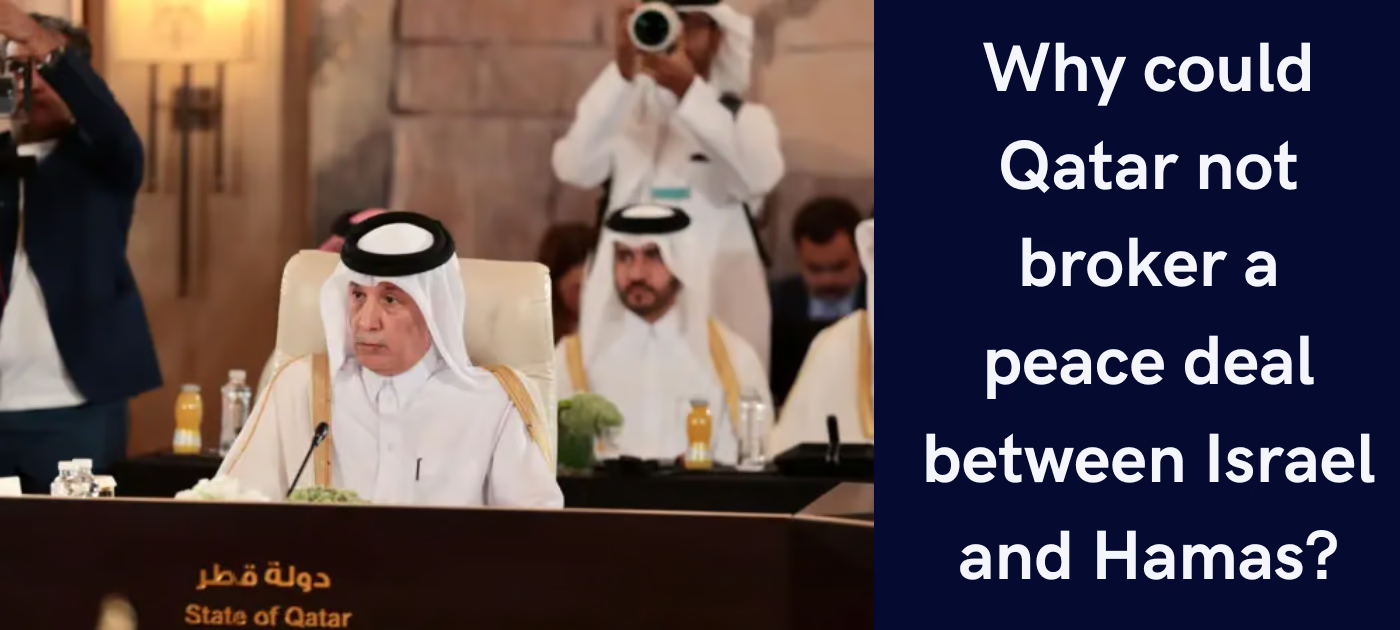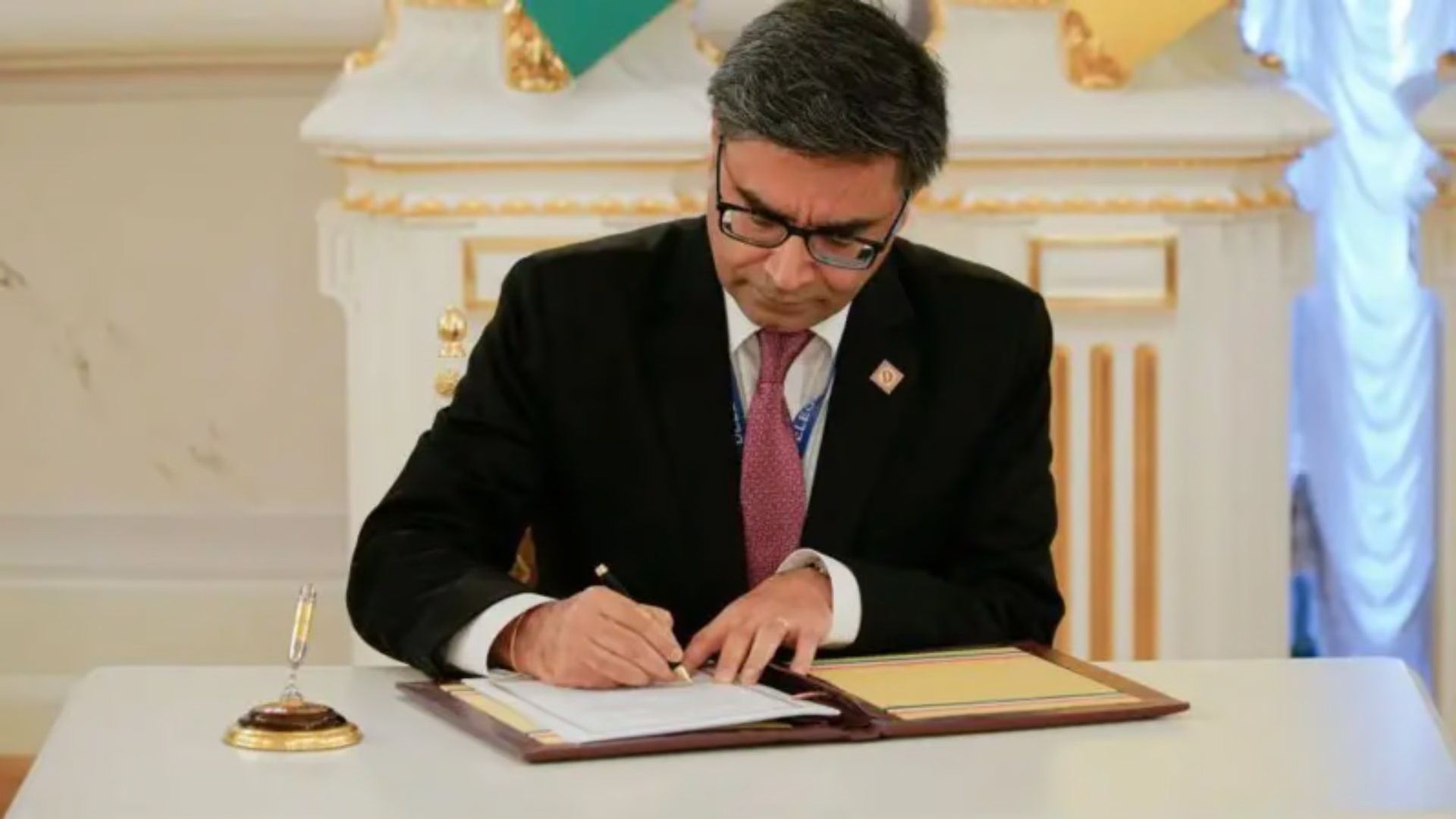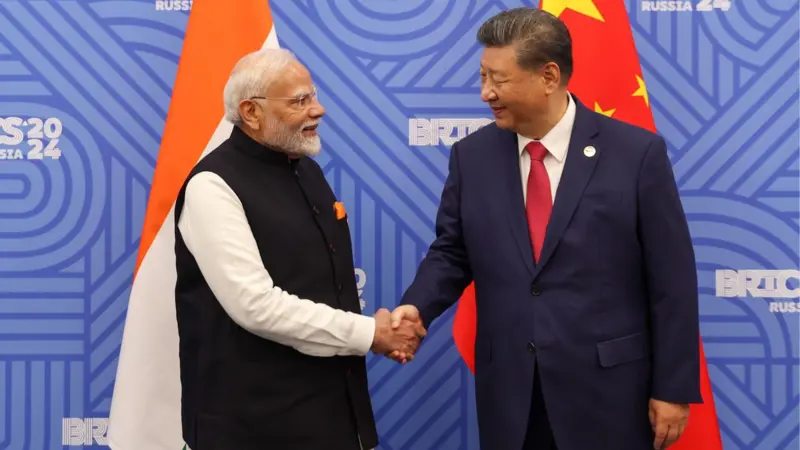Giving the reason for withdrawing from mediating the peace deal between Israel and Hamas, the Qatari government has said that both parties were ‘reluctant’ about the deal.
But along with this, the US is allegedly putting increasing pressure on Qatar to close the Hamas office.
This small but prosperous country has cast itself in the role of a peace envoy in the Middle East, but it is facing difficulties in brokering a ceasefire deal in the ongoing conflict between Israel and Hamas.
It is interesting to know when and how Qatar came into the role of the main peace envoy in the Middle East and why it adopted this role.
How did Qatar become the main mediator of the Middle East?
Qatar is a small country in the Persian Gulf, with an area of just 11,600 square kilometers, but it exports a huge amount of natural gas and ranks sixth in the world in terms of per capita income.
The Qatari government has chosen to play the role of mediator internationally and has brokered several peace agreements and ceasefires between conflicting parties in the Middle East, Europe, and Africa over the past two decades.
In November 2023, it brokered a temporary ceasefire agreement between Hamas and Israel, which led to the release of 105 Israeli hostages in exchange for 240 Palestinian prisoners.
In 2020, Qatar brokered a peace deal between the Taliban and the US, which ended the two-decade-long conflict in Afghanistan.
It was only after this agreement that the US and its allies withdrew their troops from there, after which the Taliban came to power in the country.
Qatar also brokered a prisoner exchange deal between the US and Iran in 2023.
That same year, it brokered talks between Russia and Ukraine that paved the way for the return of Ukrainian children taken from Ukraine to Russia during the ongoing conflict.
In 2020, Qatar brokered a ceasefire between the Chadian government and 40 opposition groups, and in 2010 it brokered a peace deal between the Sudanese government and armed groups operating in the western province of Darfur.
Why has Qatar adopted a ‘peacemaker’ role?
The Qatari government describes the country’s role as a peacemaker in its constitution.
Article 7 of the constitution states, “The country’s foreign policy is based on the principle of strengthening international peace by encouraging the peaceful settlement of international disputes.”
Qatar is not only a close ally of the US, but thousands of US soldiers are also present at its Al Udeid airbase.
On the other hand, Qatar has allowed extremist groups like the Taliban and Hamas to open offices in its country.
According to Dr. H.A. Hellyer of the UK-based think tank Royal United Services Institute, this gives Qatar a special position to establish a dialogue between political powers that do not have direct communication with each other.
He says, “This position is beneficial for Qatar to establish dialogue with groups like the Taliban and Hamas because these groups have never had a confrontation with it. Due to the presence of the US military, representatives of these groups feel safe in Doha.”
According to him, “They feel that they can hold talks safely and this place will be free from assassination attempts.”
Also Read: Suryakumar Yadav’s decision regarding Tilak Verma changed the whole game
Dr. Sonam Vakil, associated with Chatham House, another British think tank, says, “This is part of the country’s image as a practical negotiator who solves problems.”
“Being a peace mediator, Qatar is useful for the US and it means that it can keep itself in an important role among the Western powers.” According to Dr. Sonam, “It also makes the areas around it safe and stable.”
Dr. Sonam Vakil says that Qatar has a team of highly trained diplomats who play a role in these peace agreements.
However, she says that these mediators are not always successful in getting a peace agreement for a permanent ceasefire between the two conflicting parties.
She says, “Qatari mediators have been very successful in getting a peace agreement in such conflicts when the cycle of conflict is in its last phase or both sides want peace. But this cannot end the tension.”
Why is Qatar facing difficulties between Israel and Hamas?
Qatar’s foreign minister said it was currently halting its efforts to mediate a peace deal between Israel and Hamas.
However, it dismissed reports that it would close Hamas’ office in Doha.
The Israeli government has since targeted Qatar, saying it is siding with Hamas and nurturing the ‘terrorist’ group.
Dr Hellyer said, “After differences with the Syrian government in 2012, the Qatari government invited Hamas leaders to move their office from Damascus to its country. They did so in coordination with the US and perhaps Israel.”
He says that in earlier conflicts Qatar has brokered ceasefires between Hamas and Israel, “but this was possible only when both sides were willing to restore the status quo.”
Dr Vakil says, “This time the situation is completely different. The Israeli government wants a guarantee of its security more than peace. The continuation of the war will help it achieve these goals. Whereas Hamas only wants peace to survive.” There is also speculation that Hamas could leave Qatar and move its office to Turkey or Iran. But Dr Hellyer says Qatar is the safest place for its leaders and he anticipates they may remain there. “When Ismail Haniya left Doha to go to Iran, Israel quickly eliminated him,” he says.





